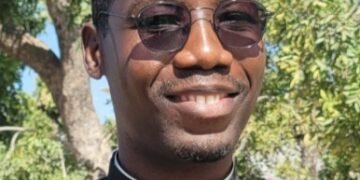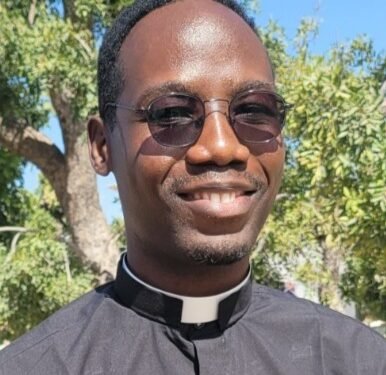By Olivia Obijiaku
The celebration of the Holy Eucharist has been described as a spiritual heritage that dates back to the Old Testament. Dwelling on the teaching, at the Mass he celebrated on the Feast of the parents of the Blessed Virgin Mary and the grandparents of Jesus, Saints Joachim and Ann, at Our Lady Queen of Peace Parish, Ahmadu Bello University, Zaria, Saturday, July 26, 2025, Rev Fr. Kingsley Agu MSP, leaned on the day’s first reading (Ex. 24:3-8), on the blood of the new covenant in catechizing that the Mass is ordained by God and founded in the scriptures.
He highlighted some of the similarities between the Mass and the rituals that Moses performed in the passage, explaining that both versions comprise listening to the Word of God; profession of faith; and offering of sacrifice. But as the Israelites went into the ritual of the sacrifice, the Church goes into the Rite of the Eucharist, presided by the chief celebrants in each case.
His words, “We are a product of rich spiritual heritage. The structure we encounter in the first reading clearly tells us that what we have today as the celebration of the Eucharist, the Mass did not just fall out of the space. It is not a work of some persons who sat down and said, “This should be like this!” It is founded on the scripture. It is ordained by God.”
“We hear how God asked Moses to order His people first. After reading the Words of the Commandments, the people ascent to what they have heard. They affirm that they are God’s Words and all He asks them to do, they shall do. Next, he goes into the ritual of the sacrifice. Again, they acclaim their belief and trust in what is, as going on divinely ordained and instituted, as we have it in present day.”
“The Liturgy of the Word is followed with the profession of faith, clearly on Sundays and solemnities. Then, the chief celebrant goes into the rite of the Eucharist. After he performs the ablution and invites us to pray, we give our response of faith. Again, we give our ascent and belief in God and the mystery into which we are grafted.”
“The Eucharistic sacrifice is a participation in the covenant in which weak God’s people are with God. That is why, instituting the Holy Eucharist, Jesus re-affirms, ‘This is the Blood of the New and Eternal Covenant. By participating in the Eucharist, we develop an intimate union with Christ.”
“A covenant is a union beyond the physical. One of the effects of receiving the Holy Eucharist is that we become who receive. It is a promise and preparation for us to journey with the chief celebrant, the host and the victim to heaven. By participating in the Eucharist, we develop an intimate union with Christ.”








































